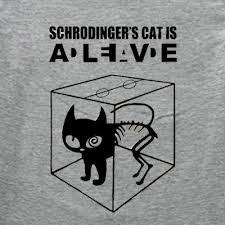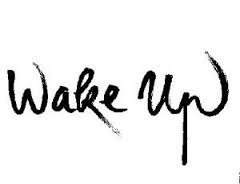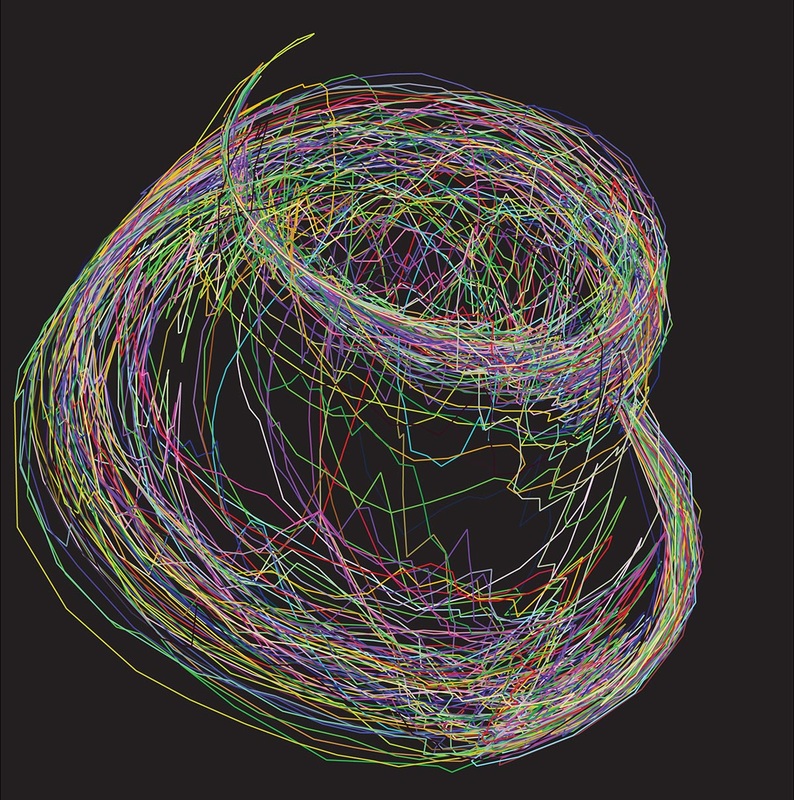|
I just read about this today. Learning is a change in behavior as a result of experience.
The Inductive learning cycle is in a circle-where the last step goes back to step 1. 1. Experience 2. Share, Post, Report, 3. Process (find patterns, group dynamics, key recurring themes/dimensions) 4. Generalizing (inferring principles and making assumptions) 5. Applying (Now What) This cycle is applicable in many settings and situations. This is an invitation to an adventure in awareness, a systemic approach to the experience of living that only makes living more real.
Oh No! There's a hill to climb! Let's climb on it! Hoo-Haa, Hoo-Haa... Let's take a breath. At any moment, we can be home, and home is much closer than we think. If we can just realize the fullness of THIS moment, the reality of THIS breath, we can be at home right now, in our body just as it is. Oh No! There's tall grass! Let's swaddle through it! Flish-Flash, Flish-Flash... Let's take two breaths. There is a way of being, a way of living, a way of paying attention that is like starting anew, coming out of a womb, tasting snow for the first time. To explore it as a pure idea would be an exercise in thinking. An exercise without life. Oh No! There's a river! Let's Swim across it! Swish-Swash, Swish-Swash... Let's take three breaths. See for yourself how things change when you take a few deep breaths and pay attention to how you feel your body. A few breaths and your ears can hear music out of lightbulbs. A few breaths and your camera has a new filter which beautifies the most ordinary object. Oh No! There's a swamp! Let's waddle in it! Schlop-schlap, Schlop-schlap... Let's take four breaths. Though these acute senses brought you superpower, we are more than our body. We are more than our emotions. We are more than our thoughts. Like leaves floating down a stream, with stillness, we can watch our thoughts passing by, one by one. That’s what’s peculiar about thoughts, they all do that, passing by. I hear a growl, I see light, I feel the breath.... It's a bear!!!! Now is the only time you have to live. Each moment is truly the first moment of the rest of your life. Your life is already doing the doing itself. You don’t have to do the living. Just live, and observe. Let's go home! Schlop-schlap, Schlop-schlap, SwimshSwash, Swish-Swash, Flish-Flash, Flish-Flash, Hoo-Haa, Hoo-Haa No one can tell you what your path is. There is no ONE way. There are manifestations of ways. Our journey will find its own way. Sometimes it takes time to know a way. These are moments of not knowing. Just as silence are as important as sound in a good piece of music, these not-knowing moments are part of that song that is closest to our home. Back home! Aaaahhhh Tweet, apps, and even blogs, such as this one, teach us the habit of impatience. The average shot in an American movie is now two seconds compared to 27.9 seconds back in the 1950s.
Our brain is wired to gravitate towards the unfamiliar. An exquisite piece of music and a good movie contain a perfect balance between the familiar and the unfamiliar. Creators know how to build expectation, let us hang and wait, and bring us to estacy or disappointment just at the right moment. But in this age of immediacy, one has learned to expect novelty every two seconds instead of half a minute. A video game has to reward small achievements quickly or the player may quit working towards the big reward. We now have Kindergarten graduation because worldwide old rites of passage for teens are not early enough. Human curiosity, essential to an exploring mind, is dragging us from one object to another much too fast and too soon. We leave a window without taking time to reflect on the previous one. Our mind jumps from one window to the next without any insight from the old one. "Beyond the age of information is the age of choices,"1 and with so much fake news and real news floating around, what should we choose to spend more time on? How much time of looking-in compared to how much time we spend looking-out? What is a good balance for you? Our world is bombarded with streams of texts, emails, tweets, instagrams, facebook messages, likes and ads. Google and facebook know who we are before we know ourselves. A research suggested that the knowledge of unopened mail in our Inbox can decrease our work efficiency. We worry about what we may be missing. In order to not miss out on anything, we gravitate towards new things that get our attention. Quicker and faster now more than ever. Our hunger for novelty increases with usage, and we get hungrier faster. Our capacity for slow processes or difficult challenges -that require disciplined efforts- diminishes. Instant coffee, instant noodles, and now, instant emotional gratification in the appearance of online friendships and relationships. The web threatens deeper inquiry. "In this world of sound bytes, the art of conversation is replaced by personal broadcasting. We are not paying attention to the subtle, the understated." 2. In the age of immediacy, we lost the true curiosity, the one that wishes to truly understand. Deep Listening facilitates understanding. Practice each day, listen to "noises" and silence around you. Practice to recognize HOW you perceive them. Listen without judgement, and that includes immediate reaction. Listen without preconceptions, as if you were just given ears. Cultivate true curiosity. 1. Charles Earnes 2. Julian treasure Like most people, sometimes I stand in front of a supermarket aisle and get frustrated with the number of decisions to be made. When there were three options I had the time to read through the table for fat, sodium or sugar content. Nowadays we are usually confronted with more than three choices. This "Paradox of Choice" Ted talk made me laugh with funny cartoons and jokes. Barry Schwartz is pointing us to an important fact: Given the multitude and easiness of choices, our expectation level will be raised, thus our happiness level will change if a small "something" goes wrong because we think we had more control than we really did. Hmmm, does this sound familiar to my fellow perfectionist artists out there? Does this sound familiar to parents out there? The life-long balancing act of asking the most of ourselves and forgiving ourselves. Another Ted talk on choices we make from a philosopher's point of view, pointing us to our freedom to choose as a way to know ourselves better. When writing pros and cons for choices, one is in fact choosing which aspects of life we would value more, and values take a lifetime to define. What really matters to us? That list changes with time, and it also changes us. There are those who feel that "happiness is wanting what you have." Others feel that one should not get too comfortable but strive to question ourselves to change and adapt. As performers, do we, if under pressure in a short time period, choose overall spirit of the piece over technical cleanliness? do we choose to perform less often to a smaller well informed audience on more "appropriate" stages or do we choose to reach out to a less informed new audience with easier level pieces of music ? What were our goals when we went for that higher education degree? As teachers, do we, when students start to spend more time thinking about other activities or the opposite sex, choose to build a life-long music- lover over a future competition winner? Ruth Chang believes in personal ultimate freedom, though her examples are for developed country audience, she is raising a good point.  Science is confusing. One may tend to believe that Art is open to interpretations but that Science would be black and white, with right and wrong answers. Afterall, these predictive precise results are the reasons technology evolved. "To every force there is an equivalent force in the opposite direction." "Resistance (to gravitation) is futile" I use these principles when teaching drops on the piano. Then came Quantum physics. The world of probabilities opened up. In the interpretations of Quantum physics’ thought experiments, one stuck out and inspired many to write. Philosophical and humorous books debated its ramifications: the principle of superposition. Back in the early 1990s, I was so impressed with it that I presented a project linking music to this theory in a doctoral seminar. Just like Young's double slit experiment which described light as BOTH particle and wave, in 1935, Erwin Schrodinger proposed a theory: a cat is put in a box with three objects — a Geiger counter, a radioactive substance and poison that will kill the cat if the Geiger counter detects radioactive decay — In the Copenhagen Interpretation (Niels Bohr) of this thought experiment, the cat EXISTS AS BOTH alive and dead until the box is opened, when it instantaneously becomes dead or alive. It’s the act of measurement that is actually driving the system, when someone is perturbing the system by measuring it. In music, is there any superposition of states one can think of? The "in the moment" state with the "anticipation" state co-existing simultaneously as one performs? The "zooming in the details" and the "zooming out for the bigger phrase or structure" co-existing as one practices? The "let the muscle memory work" and the "control freak" in us co-existing at the same time? The "relearse wrist and arm" as one tries to "keep the finger's joints firm" at the same time? You can think of countless other examples. Please share on the Contact page with me if you have ideas. Would musicians perturb the system if we try to measure it? Should we just leave these co-existing states-of-being do what they do without conscious awareness of what or how they do it? I think this topic deserves more thought, more readings of research on "Insight", and another entire blog someday. In the quantum mechanical theoretical model NOTHING HAS TO happen. The particle never has to decay. The probability just keeps getting closer and closer to one. There is nothing to force a real event to happen until one measures it. Quantum mechanics only describes how probabilities change with time. It says nothing about the state of the cat as these probabilities change, what happens between observations has not been tested, until recently. In a new paper on the cover of Nature in August, 2014, scientists from the University of Rochester, University of California at Berkeley and Washington University in St. Louis have shown that it is possible to track these quantum trajectories (see image below). They compared them to a recently developed theory for predicting the most likely path a system will take between two states. Professor Jordan of Rochester University offers the analogy of butterflies making their way one by one from a cage to nearby trees. “Each butterfly’s path is like a single run of the experiment, they are all starting from the same cage, the initial state, and ending in one of the trees, each being a different end state. By watching the quantum equivalent of a million butterflies make the journey from cage to tree, the researchers were in effect able to predict the most likely path a butterfly took by observing which tree it landed on. Dr. Siddiqi, of Berkely, used a circuit that can only be in two states, called a ground state and an excited state. This circuit is a type of qubit, or unit of quantum information. They probed inside the box without opening it and followed the path the particle makes. They find that the particles follow the most likely path is one of least resistance, and that it is a probability function. These ideas also deserve another entirely separate blog entry. For the first time as well, physicists have generated an entanglement between a single photon and a coherent wave-like state of light, demonstrating that light is both particle and wave in a new paper published July 2014 in Nature Photonics, by physicists Hyunseok Jeong, et al., at institutions in South Korea, Italy, and Australia. Experiments are starting to catch up to Quantum theory in physics. That had always been how that field worked. Hypothesis come before experiments. Insights can come before conscious understanding. Most musicians work that way. It is the most direct, the most intuitive, usually the fastest way. Does it guarantee a perfect performance each time? No. Is there such a thing? I always feel sympathetic to visual art creators, for they have to finish with a product. On a particular day, the art work is finished, ready for viewing, fixed at a moment in time. Musicians have the luxuary of an ever changing art form that only exists at a specific point in time. Music parallels our life. In music, we also have hypothesis and experiments. The music field includes both theorists and performers or teachers. There are specialists in the "Philosophy of music," a field I only recently stumbled on, specialists in the field of "Music Education, "specialists in "musicology," in "music theory," and so on. There are times I wonder how disconnected and lonely we all are, each of us in our own cubicle of specialty.There are so many different professional organizations in music that it is difficult to join all of them. What good are theories, philosophies and talks ABOUT music if not applied? What good is the formation of excellent performers without an audience to appreciate what they have to offer? Advocates for music in society try to use research in Neuroscience to justify its value in society. If most people believed that probability rules our world at the smallest level of "matter" perhaps we can fight this battle on another battlefield. There are mysteries unsolved, and there will always be.  How can we practice being fully in the present moment while listening or/and performing? How can we stop self-doubts and self-criticism while we play? After all, isn't ear training and critical hearing part of a musician's learning process? Through many years of musical training we had to learn to decipher good tones from bad tones, stylistic features as acceptable or unacceptable, and we need to turn all of that off when we perform on stage?! As performers, how can we fall in love again and again with a piece we have been rehearsing thousands of times? Athletes have what they call "tappering off" week, the week before the "performance." They gradually decrease their hours of training as the deadline approaches, in order to save their energy. We musicians should do the same, to save some spontaneity. The most wonderful audience members are those who come without expectation. While I easily have fun at Salsa, Rock, Blue Grass, or Jazz concerts, I sometimes find myself incapable of turning off my thoughts and critical listening habit when I attend "Classical" music concerts. The more I have analyzed a piece or heard its numerous interpretations, the harder it is for me to just pretend I am hearing that piece for the first time. I can enjoy the concert if I am there to support a friend, a colleague, a festival, a community gathering, but I find it much harder to simply immerse myself in the music... for music's sake. For both performer and listener, it is a matter of "waking up" to the familiar, no matter how familiar it seems. Perhaps we should try this, the practice of being "AWAKE," outside of our music practice rooms and institutions. We live most of our waking moments half-awake. Each day we multitask, prioritize, follow a To-Do list, and this routine can throw us into a reactive mode, where automaticity takes over and we lose sense of what really matters. Have you ever driven and made a familiar turn, then realize that's not where you wanted to go? When we eat, drive, wait in line, most often our mind is either dwelling in the past or planning the future. "Wake Up" is a term used by Thich Nhat Hanh more recently, to complement his "Mindfulness" teaching: Be awakened to what is truly there. Recognize without criticizing your distracted mind, your emotions, your reactions, your thought habits. Just take note of their existence and say to yourself "Breathing in, I know that I am thinking/feeling ....." This practice usually brings me a sense of gratitude, of peace, and of wonder. I return to it intensely on the day of the performance and minutes before walking out on stage. It has helped me tremendously. Kelly McGonigal and her success with Tedtalks and book on the topic of "making stress your friend" is basically applying this technique in her research. By recognizing the desire to smoke, and stopping just a few seconds to recognize "desire" and "cravings", the participants ended up less addicted and gradually were able to reduce their cigarette consumption. I try my best at this practice and sometimes I succeed, sometimes I fail.There is no guarantee that practicing for a long period of time makes you better at it, just as there is no guarantee that after 10,000 hours of practice, as Ericsson has found in his research, that we can always be at our best on stage. That, is just how life is. So just "Wake Up," just for now, for we will all be gone one day. |
BloggerI have known Thich Nhat Hanh since 1984 and try to practice Mindfulness in my daily life. Recently I trained and am now a qualified teacher for Mindfulness Based Stress Reduction at the University of San Diego. See the main tab Mindfulness for course offerings. Archives
June 2019
Categories |


 RSS Feed
RSS Feed